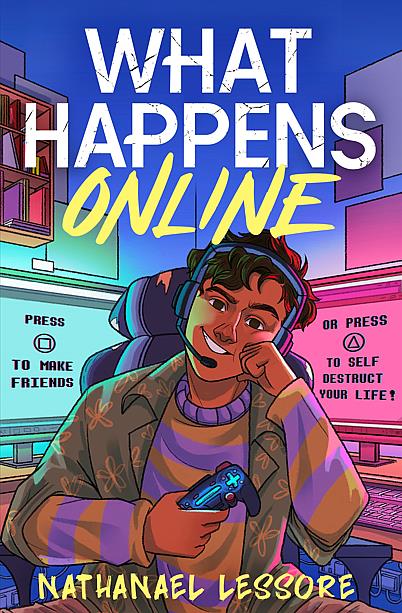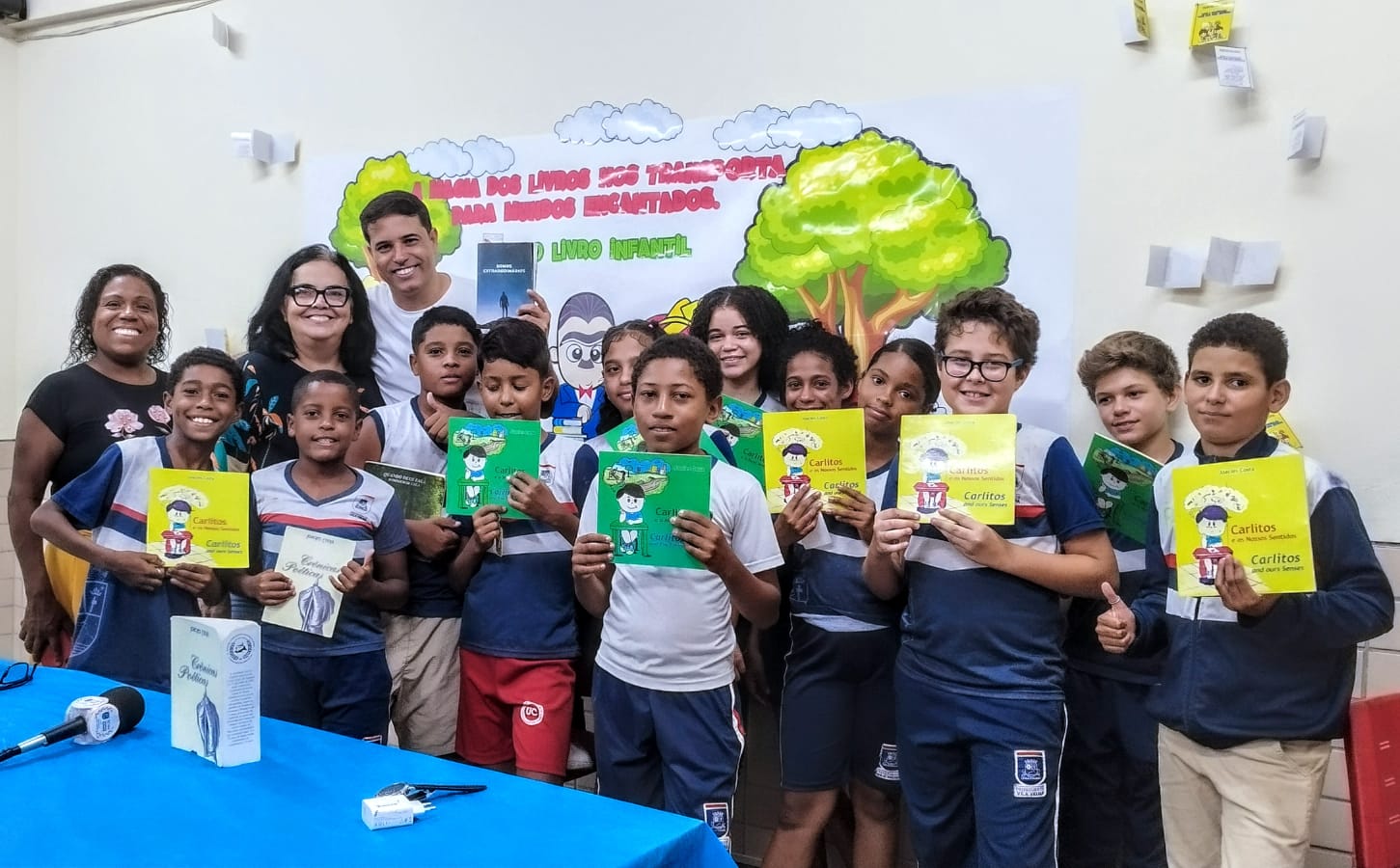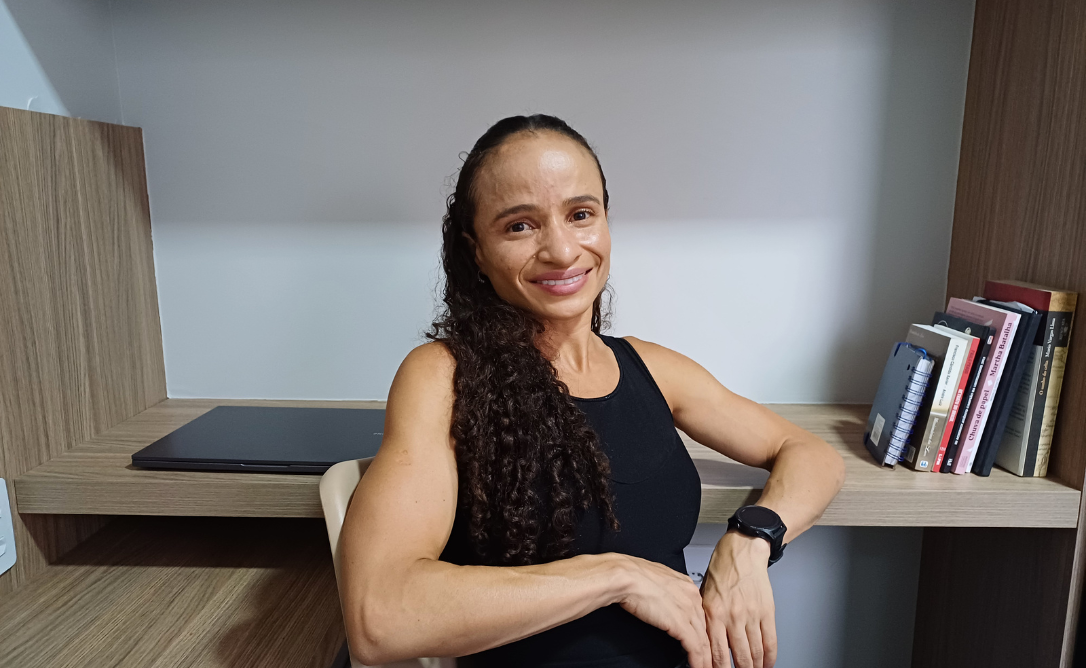After winning the Waterstones Children’s Book Prize in the Older Readers category and being nominated once again for the prestigious Yoto Carnegie Medal, British author Nathanael Lessore has solidified his place as one of the most influential voices in today’s young adult literature. With works like Steady For This and the newly released King of Nothing, Lessore has stood out for addressing topics such as bullying, mental health, and the pressures of online culture with both sensitivity and humor. Drawing from his experiences as a Black working-class youth growing up in Peckham, London, he turns personal stories into narratives that speak directly to teenagers — especially boys who are reluctant readers — and has already been featured on platforms such as BBC Radio 4, BBC Radio London, and ITV News London.
You are often praised for striking a balance between humor and heavier themes like mental health and bullying. How do you find that balance when writing stories that need to be both impactful and accessible for teenagers?
My editor, Ella, always knows where to put the emotional beats. After every first draft, she fixes, removes and replaces all the narrative points. All I have to do is write the emotional scenes where she tells me to write them. The accessibility of the emotion always comes from lived experience. I grew up as one of eight kids; there was a lot of love, but there was also conflict with several moving parts. I don’t think I’d be creative enough to “invent” conflict and emotional scenes if I hadn’t lived it.
What Happens Online dives into the complexity of growing up in an increasingly virtual world. How was it for you to translate these digital experiences into a narrative that speaks directly to a young audience?
School visits help very much. Students are always quoting the latest viral song, or game, or video at me. I don’t know what it’s like to grow up with the beast that is social media, but I do know what it’s like to be an awkward, nervous, socially inept teenager. And I know enough about the virtual world that I can blend those two things together.
Many readers relate to your journey, especially because you portray the life of a young Black working-class person in London. In what ways do these roots continue to shape your writing and the themes you choose to explore?
I can only be honest. And as someone not particularly creative, drawing from life experiences is all I have. Not just mine, but the people around me, and I love listening to people talk about their weird quotidian. Also, “Write what you know” was drummed into us at uni. I kinda live by that when I write.
Steady For This didn’t just win awards — it won hearts. When you wrote this book, did you imagine it would have that kind of impact on readers?
No, nay, never. And it’s lovely of the person who wrote these questions to say that. I didn’t let myself imagine anything beyond selling a single copy (which would’ve been enough for me).

You’ve been an active voice on radio and TV programs discussing the importance of representation in children’s and YA literature. How do you see the role of the author in transforming access and identification for young readers?
I see the role of the author in representation as a small-ish part of the bigger picture. Access comes from librarians and booksellers, and publishers who want to tell these stories in the first place. I’ve been very lucky on all those fronts. Representation means nothing if it’s kept under a bushel. But when kids relate to literature, it changes lives. It’s one of the most important things I’ve ever done.
By addressing topics like online culture and peer pressure, you offer readers more than entertainment — you offer reflection. What kind of response have you received from teens when they see themselves mirrored in your characters?
They tell me straight up that they loved this character, or that character, or that book was “mad good”, which they might not say if they couldn’t relate. The reception from teens has been overwhelming at times. They know I’m legit, I grew up like them. And it gives a lot them the confidence to write themselves, something a lot of them wouldn’t have otherwise had.
You’ve mentioned that your personal experiences deeply influence your stories. Is there a specific moment from your teenage years that you consider a turning point and that directly inspired one of your books?
I remember burning my finger hairs off with a lighter on a packed tube on the way to sixth form. I remember having holes in my shoes, and my socks were pungent, so I stuffed the holes with toilet paper on my lunch break. When I think of my most awkward times as a teenager, my mind takes me to that era.
With King of Nothing also receiving recognition and your name increasingly gaining prominence in the literary world, how are you handling your career growth and the impact you know you’re having on a new generation of readers?
I’m definitely busier. Without sounding ungrateful, I don’t care about my career like that. Writing is a job that I love, but I don’t have aspirations beyond my next contract or my next email. Once upon a time I said that if I sell one book for a pound, I’ll be a pound up. Now I’m hoping that if I do a school visit and inspire one kid to be an author, then I’m doing something worthwhile.
You recently won the Waterstones Children’s Book Prize in the Older Readers category and are also a finalist for the Yoto Carnegie Medal. What do these achievements mean to you personally and professionally, especially considering the kinds of stories you choose to tell?
I don’t know. Personally, it makes me emotional, in the best way. Professionally, it keeps my marketing career in the rearview mirror for a little while longer.
In recent weeks, you’ve appeared on shows such as BBC Radio 4, BBC Radio London and ITV News London discussing the impact of your books. What has it been like to see your work being featured in such major outlets and to realize your stories are sparking important conversations about teen life?
I’m quite passionate about the topics discussed in King Of Nothing. Even now, I have to hold back from going on a rant. These conversations can save lives. They can change lives. I say “can”, because there has been resistance to the very basic message of empathy and equality. I can only hope that the conversation leads to action, but I’m glad the discussion is finally being had (it’s been years in the making). Seeing my work featured on big platforms is quite surreal.
Follow Nathanael Lessore on Instagram





